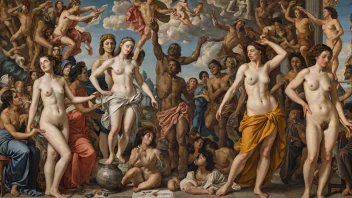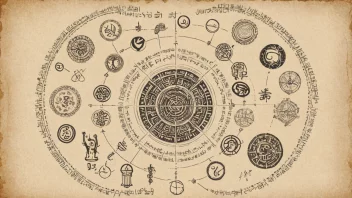Music is often described as a universal language, transcending borders and connecting people across diverse backgrounds. Its ability to reflect and shape cultural values is profound, making it an essential subject of study in the humanities. Music not only mirrors the sentiments and experiences of a society but also influences social norms, behaviors, and ideologies. In this article, we will explore how music serves as a cultural mirror, a tool for social change, a vehicle for identity, a reflection of historical events, and a bridge between generations.
Music as a Cultural Mirror
Music often reflects the values, beliefs, and emotions of a society. It captures the essence of cultural identity and provides insight into the collective psyche of a community. For instance:
- Folk Music: Traditional folk songs often tell stories of cultural heritage, struggles, and triumphs, preserving the history of communities.
- Popular Genres: Contemporary genres like hip-hop and pop reflect current societal issues, such as inequality, love, and political unrest, resonating with listeners' experiences.
- Cultural Fusion: The blending of different musical styles can showcase the evolving nature of cultural identities, as seen in genres like reggae or world music.
Music as a Tool for Social Change
Throughout history, music has played a pivotal role in advocating for social justice and change. Artists often use their platforms to address pressing societal issues, such as:
- Protest Songs: Songs like Bob Dylan's “The Times They Are a-Changin'” and Billie Holiday's “Strange Fruit” have galvanized movements for civil rights and social justice.
- Awareness Campaigns: Modern artists leverage social media and music festivals to raise awareness about issues like climate change, poverty, and human rights.
- Community Building: Music festivals and concerts often bring together individuals from various backgrounds, fostering solidarity and collective action for change.
Music and Identity
Music is a powerful medium for self-expression and identity formation. It allows individuals to connect with their roots and express their personal and cultural identities. Consider the following:
- Genre Affiliation: People often identify with specific music genres that resonate with their values, such as punk for rebellion or classical for sophistication.
- National Anthems: National anthems evoke feelings of pride and belonging, reinforcing national identity and unity.
- Subcultures: Music scenes, like the goth or rave subcultures, create a sense of belonging and community among individuals with shared interests.
Music as a Reflection of Historical Events
Music often serves as a commentary on historical events, providing context and emotional depth to significant moments in time. This connection can be seen in:
- War Anthems: Songs like “Fortunate Son” by Creedence Clearwater Revival reflect the sentiments of those affected by the Vietnam War.
- Revolutionary Music: The role of music in revolutions, such as the role of “La Marseillaise” during the French Revolution, highlights how music can inspire and mobilize.
- Documentary Soundtracks: Documentaries often use music to evoke emotions and provide historical context, enhancing the storytelling experience.
Music as a Bridge Between Generations
Music has the unique ability to connect different generations, allowing for the sharing of experiences and values. This intergenerational connection can be seen through:
- Cover Songs: Modern artists often cover classic songs, introducing them to younger audiences while paying homage to past musicians.
- Family Traditions: Many families pass down musical traditions, such as playing instruments or singing songs, creating a shared cultural heritage.
- Collaborations: Collaborations between artists of different ages often lead to innovative music that resonates across generational divides.
In conclusion, music is a powerful force that reflects and shapes cultural values in myriad ways. It acts as a mirror to society, a catalyst for social change, a means of identity expression, a reflection of historical events, and a bridge connecting generations. By understanding the cultural significance of music, we can appreciate its role in shaping our world and the values we hold dear.






